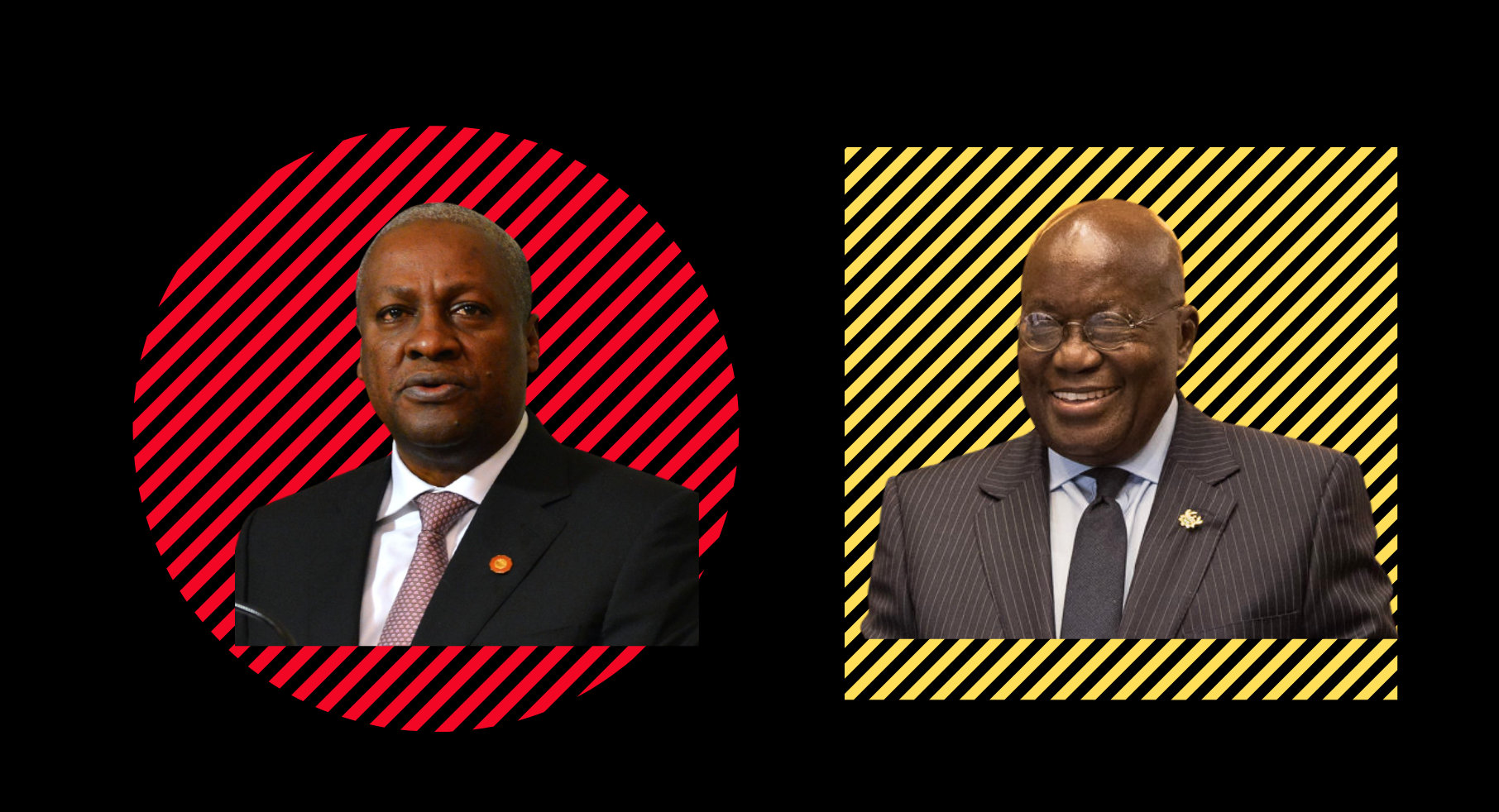As Ghana goes to the polls to elect a President to lead the country for the next four years, We examined the policy positions of both parties and the burning issue taking centre stage in the election.
Issue-Brief | Sam Kwadwo Owusu-Ansah
Polls have opened across a majority of the 33,367 polling stations in Ghana’s 16 regions where 17,027,655 Ghanaians are expected to vote for 275 members of Parliament (save in the Guan District Assembly due to a redistricting issue) and more interestingly, to elect a president to lead the country for the next four years.
Nana Addo Dankwa Akufo-Addo of the New Patriotic Party (NPP) vies to protect his incumbency, a feat which his opponent John Dramani Mahama, the former president and flagbearer for National Democratic Congress (NDC) was unable to achieve in the erstwhile 2016 presidential elections.
Campaigning for this election cycle was subdued by the Covid-19 pandemic with some commentators describing the lead-up to the elections as ‘boring’. The cries of an election being “the most important of a generation” which has featured prominently in election cycles elsewhere during the year are notably missing in the Ghanaian situation. Nonetheless, the scaling down of the pandemic restrictions saw a boost in the campaigns of the two major parties and a semblance of the mammoth rallies of times-past was achieved in the weeks preceding the campaign deadline on Saturday, December 5, 2020.
The issues
The ideological differences between the two parties, like in several other African states, are insignificant. For instance, while the incumbent NPP identifies as centre-right and positions itself as the pro-business party, its flagship campaign policy is the achievement of the Free Senior High School (SHS) campaign promise it made in the previous election, a policy the proclaimed social democrats of the opposition NDC decried as unrealistic and undesirable in that election cycle.
The NDC promises, if given the mandate, to optimise the Free SHS policy and put an end to the double-track system, a contingency measure adopted by the government wherein students and staff of SHS will be divided into two streams to accommodate the influx of students and reduce the strain on school resources.
The opposition further promises to absorb the fees of first-year tertiary students and absorb half of the fees of continuing students. Their manifesto boasts a host of policies to incentivize small businesses, expand the National Health Insurance Policy and to check the proliferation of Small Arms and Light Weapons which have become an increasing concern in Ghanaian society especially in the light of the security situation in the sub-region.
The government on its part promises to continue on its digitalization project and to recoup the impressive gains it made in the economy prior to the pandemic. Their manifesto focuses especially on their handling of the pandemic, which has been largely perceived in a positive light by the public, and the presentation of a post-Covid-19 recovery plan.
Nonetheless, the issue which has taken centre stage in this election is corruption. The Mahama- led NDC administration between 2012 and 2016 was marred in several corruption scandals which adversely impacted public perception against them. Nana Akufo-Addo played on these sentiments to present himself as an anti-corruption crusader in the previous election to secure victory for the NPP. Efforts to live up to this anti-corruption title have been largely seen as ineffective.
The ideological differences between the two parties, like in several other African states, are insignificant.
The establishment of the Office of the Special Prosecutor to investigate corruption cases and a “clean-up” of the banking sector, which has cost the country an estimated GHS 22 billion (USD 3.7B), have done little to dispel the perception of corruption. On the contrary, Martin Amidu, the Special Prosecutor appointed by the president tendered his resignation last month following claims of government intimidation following an anti-corruption assessment of a controversial government proposal on how national gold revenue should be invested. That was the latest in a long list of corruption scandals that the incumbent government has been entangled in.
Effectively, Afrobarometer reports an increase in perceived corruption amongst the Ghanaian populace. One author has thus referred to the elections as a choice “between a crocodile and an alligator”. The Economic Fighters League, a movement for economic justice in Ghana, have thus embarked on a campaign to persuade voters to withhold their votes in protest of the corruption and to delegitimise the outcome of the elections. The success of their campaign will send a clear signal to the eventual winner that the culture of impunity that has plagued Ghanaian politics will no longer be countenanced.
However, the prospects of a successful boycott look bleak.
Whereas the atmosphere in the country is relatively calm and the post-election situation is expected to be no different from the six other times Ghana has headed to the polls since the country’s return to democracy in 1992, Ghanaians must be cautious not to get complacent and must be geared, even as they exercise their ballot, to look beyond physical violence and hold whichever candidate who emerges victorious to account for the ways their actions and inertia enable structural violence to manifest in the lives of Ghanaians.
This issue brief was provided by
Sam Kwadwo Owusu-Ansah | Research Analyst, Transnational Policy | s.o@borg.re
Our issue-briefs provide commentaries on knowledge surrounding a current relevant local or transnational discussion.
The opinions expressed are the sole responsibility of the authors and do not necessarily represent the official position of borg.
The ideas expressed qualifies as copyright and is protected under the Berne Convention.
Reproduction and translation for non-commercial purposes are authorised, provided the source is acknowledged and the publisher is notified.
©2020 borg. Legal & Policy Research

